10 Vegetables and garden plants that you can harvest quickly
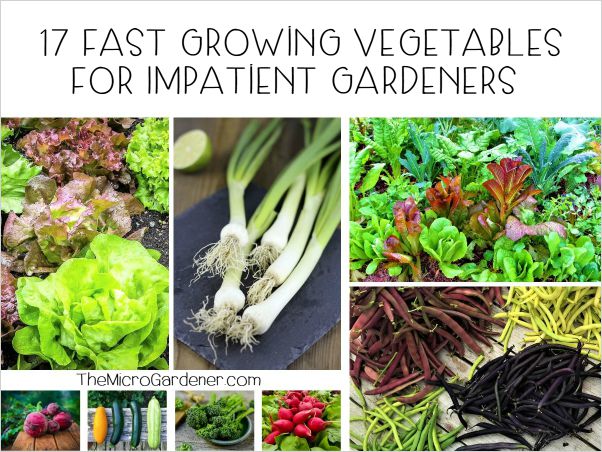
How long do garden plants take to grow? What are the fastest growing vegetables? If you want to start growing a garden at home and get the harvest in no time, today’s article will help you choose the most suitable plants. Let’s see them!
10 vegetables that grow fast
These are garden plants that grow fast, so in a few weeks you can get the first harvest. It is not necessary to have a garden to grow them, since all of them can grow in different types of containers for the urban garden, such as pots, planters or cultivation tables.
Although they are vegetables that grow fast, like the rest of the plants, they need some time to develop… There is none that does it in less than 6 weeks, so you have to have a little patience to grow a garden at home. (If you want to bring forward the orchard harvest, take a look at the next section of the post).
1. Radishes
The radish is one of the quintessential beginner vegetables. It grows fast and is easy to cultivate since it does not require too much care or is demanding in terms of the type of soil.
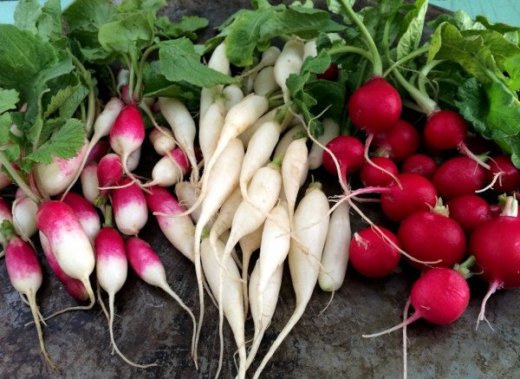
In the article How to grow radish in the garden: Complete guide you will find the steps to grow radishes at home.
2. Carrot
The carrot, like the rest of the vegetables that grow fast, does not require a previous seedbed, but can be sown directly on the ground or in the final container.
This plant is perfect for companion planting with radishes in the same pot, and can be harvested in no time (carrots will be ready in about 6-12 weeks, depending on the variety). Take a look at the post on How to grow carrots step by step to learn more about growing this delicious root.
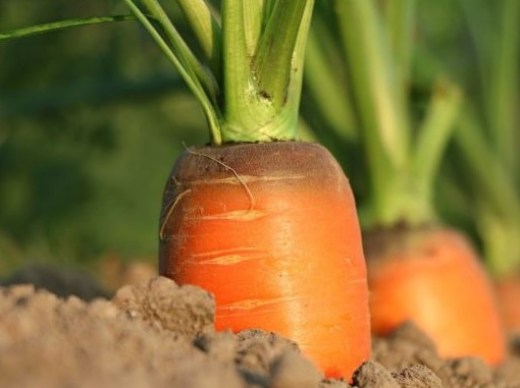
A curious thing about growing fast-growing vegetables is that some of them can be regrown without using seeds. This is the case of carrots, which can sprout from a piece of the root itself.

If you want to learn how to do it, you have all the steps in the post How to Grow Carrots: Complete Guide with Images.
3. Spinach
Spinach is another fast growing vegetable (the first leaves will be ready to harvest in about 7-8 weeks).
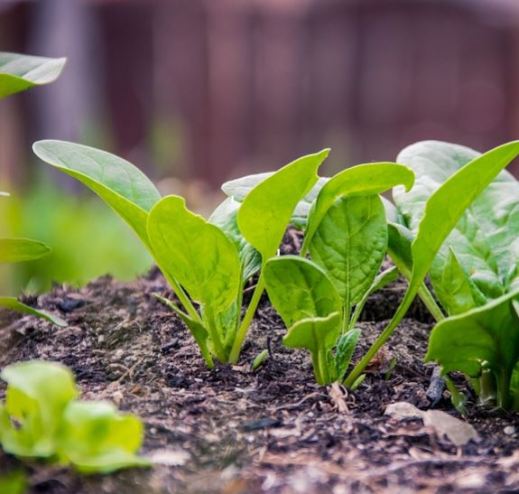
In general, it is an autumn-winter crop that does not do well in temperatures above 15-20ºC, so it is important to look for heat-adapted varieties if you want to grow in spring or summer.
(More details in the post How to grow spinach in the garden).
4. Thyme
Unlike the rest of the garden plants that grow fast, thyme is not an annual plant, but it lasts several seasons, so we can harvest the leaves and flowers for several years.

Like almost all aromatic plants, thyme can be easily grown indoors in pots. You must bear in mind that this plant needs a lot of light, so it is important to choose a very sunny place. In the article How to plant thyme you have all the steps to grow this plant that is so useful in the kitchen.
5. Arugula
Arugula, also known as caterpillar, dandelion or rocket, is a fast-growing vegetable that is increasingly popular in the kitchen of half the world, especially for use in salads and soups.

It is an easy crop and can be grown throughout the year as it has a wide range of temperatures. In about 6 weeks the first leaves can be harvested. If you want more details about this plant, take a look at the post Growing arugula step by step.
6. Basil
Growing basil in pots is easy even for beginning gardeners. If it is sown in spring we can start harvesting the first leaves at the beginning of summer.

In addition to growing basil from seed, this aromatic plant also supports reproduction by cuttings. We can regrow and get new basil plants by cutting some stems and submerging them in water so that they grow roots.
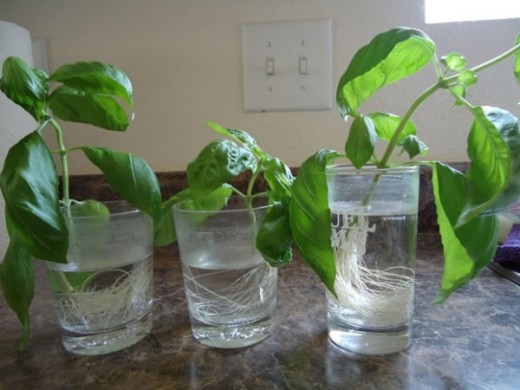
7. Lettuce
Like most leafy vegetables, this is one of the fast growing garden plants that is easy to grow at home. Lettuces do not have large roots, so they can grow well in small pots or planters about 20-25 cm deep.

Depending on the variety and the climate, the lettuces will be ready to harvest in about 7-10 weeks from sowing. You have all the details of this crop in the article Growing lettuce in the organic garden.
8. Chives or chives
Like basil, chives are a good ally in the garden since, thanks to their smell, they protect other vegetables from pests such as aphids. It pairs well with carrots, so you can put them in the same planter or container to make better use of space.
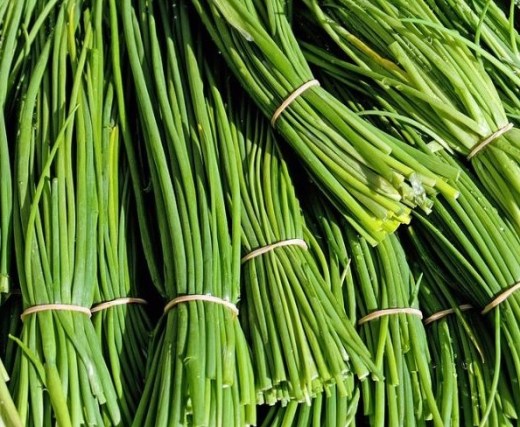
Chives adapt very well to indoor cultivation in pots inside the house, family garden if you do not have too much space.
9. Turnip
Unlike most vegetables, the turnip is a biennial plant, that is, it can last two seasons. Both its stem or bulb and its leaves, known as turnip greens, are edible.

It is a fast-growing vegetable, so the first harvest will be ready in about 6 or 7 weeks from sowing. This plant has many beneficial properties for health and is not difficult to grow (Find out how to plant it and some curiosities about it in the article How to Grow Turnips in the Garden: Complete Guide).
10. Cabbage or cabbage
Despite their size, early variety cabbages are ready for harvest in about 7 weeks (larger late varieties take a few weeks longer to fully develop.
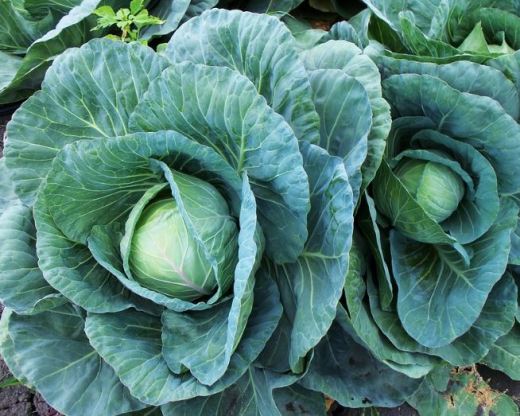
This is an autumn-winter vegetable, so it is usually sown in late summer to be harvested during the less warm months. In addition, another of the curiosities about cultivation is that, like lettuce, when it is cut it can sprout again from the stem (More information on this in the article How to grow cabbage).
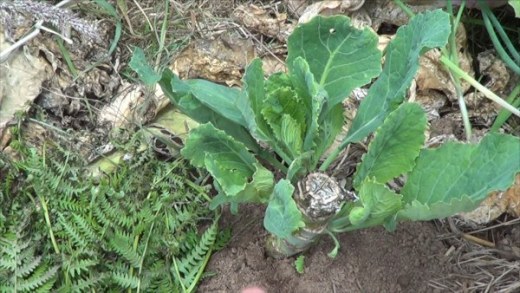
How to advance the harvest of garden plants?
If you want to get the harvest in less time, the best option is to buy seedlings or seedbeds with the plants already a little grown (which are called «seedlings» or «seedlings»), instead of starting the crops from the seed. In this way, you will save yourself the step of making seedbeds, which implies shortening the crop by a couple of weeks (which is how long it takes for the seeds to germinate and become small plants).
Although now you cannot go out and there are no shops open, on the internet we can find many garden stores or other specialized garden stores that sell seedlings, seedbeds or trays with seedlings and send them home.
Another option to bring forward the harvest is to use biostimulants or natural rooting agents so that the plants grow faster.
Use rooters to make plants grow faster
Although there are several types of commercial biostimulants made with algae or beneficial bacteria, we can also make home -made fortifiers or rooting agents that help plants grow faster.
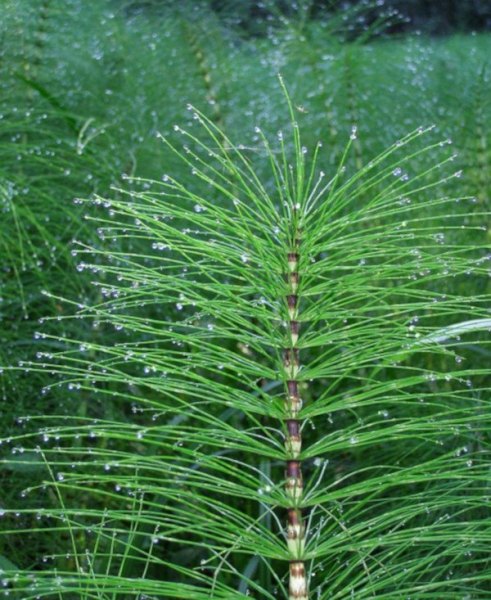
In the post on how to make natural rooting agents, we talked about homemade rooting agents made with lentils, coffee or cinnamon, which will help garden crops grow stronger and a little faster.
How to make a garden at home
Setting up a garden at home is possible even if you don’t have a garden. Even if you don’t have much space, it is possible to grow all these fast growing vegetables in containers.
If you want to see some original ideas to grow vegetables, aromatic and other vegetables for beginners in your home, take a look at the post Make a garden with little space: the family garden, in which you will find very colorful options to make a garden at home, like this little vertical garden.

If you want a summarized guide with the steps to cultivate a small garden at home, you can take a look at the post How to make a garden at home step by step: Complete Guide. In addition, in the « How to make a garden » Category we have published dozens of articles with more ideas and advice on irrigation, cultivation containers, fertilization or the tools needed to cultivate.
References
- Siura C., S. & Ugás, R., 2001. Cultivation of aromatic and medicinal herbs. National Institute of Agrarian Research of the Ministry of Agriculture, brochure RI nº 10, Lima, Peru.
- Bueno, M., 2002. The organic family garden. RBA Books.
- Vallés, 2009. The urban garden. Organic cultivation manual on balconies and terraces. Serbal Editions.
- FAO, 2014. A Garden for all. Self Instruction Manual.
- Madrid City Council, 2017. Ecological Urban Garden Course.

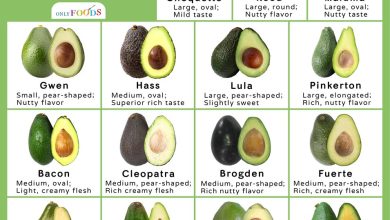
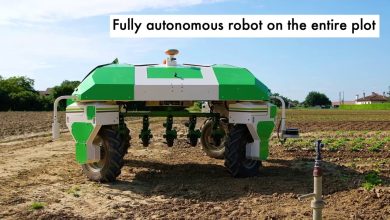
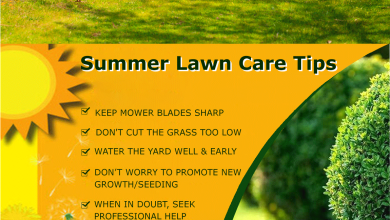
![Photo of Sansevieria: [Planting, Irrigation, Care, Transplantation and More]](https://www.complete-gardening.com/wp-content/uploads/2022/08/sansevieria-planting-irrigation-care-transplantation-and-more-390x220.jpg)